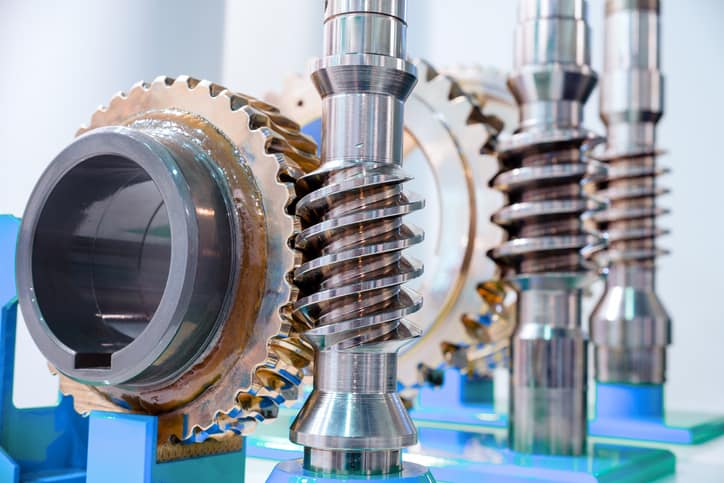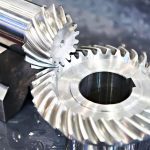The Varvel Group has specialised in the design, production and sale of mechanical gearboxes since 1955. Today, the group offers customers a vast range of technical solutions for all kinds of application in many areas of industry.

Varvel worm gears, RS and RT Series.
Varvel has invested in research and innovation for over sixty years and has developed a capacity to satisfy all the demands of today’s international market by customising products for specific applications. The versatility of Varvel’s range of worm gearboxes is a clear example of the company’s commitment to tailoring solutions to meet practical requirements. These superb gearboxes basically consist of three main parts: the casing, the worm shaft and the worm wheel. The worm wheel in particular is available in a number of variants, each made to suit the needs of specific applications.
To optimise costs and avoid the unnecessary use of bronze (a precious and therefore high-cost metal), Varvel began long ago to produce worm wheels made from two components, with bronze used only where really needed. Varvel’s standard worm wheel features a hub normally made from cast iron and a bronze sleeve bearing the teeth that mesh with the worm. This solution produces worm gearboxes that are suitable for most normal applications. In certain areas of industry, however, this standard hub in grey cast iron may not be able to achieve the level of performance required.
Where greater mechanical strength is needed, Varvel offers worm wheels with a hub in spheroidal cast iron, an alloy that offers superior performance to grey cast iron and is therefore better suited to heavy duty use.
In applications in the food industry and in all areas associated with ship-building and the marine sector, cast iron hubs are unable to withstand the highly oxidising operating environment. Food processing machines have to be washed with highly aggressive sanitising solutions, and the atmosphere on or near the sea is too rich in chlorides. To avoid the problem of oxidation in these sectors, Varvel produces worm wheels with a stainless steel hub.
For situations that demand greater mechanical strength, where spheroidal cast iron cannot be used, and for limited production series, Varvel also makes hubs in normalised or hardened and tempered steel.
Worm wheel customisation and adaptation options also extend to the bronze sleeve in which the teeth that mesh with the worm are cut. The normal material for this part is leaded bronze, an alloy that remains malleable throughout the fusion process and that therefore reduces production times while improving efficiency. Under normal conditions, leaded bronze gear sleeves satisfy the needs of most common applications.
Here too, however, different circumstances may require customised and specific solutions. Variations in performance can be achieved by changing the bronze alloy from which the sleeve is made. Nickel bronze gear sleeves are used for higher torque transmission, to improve resistance to compression and impact and to combat corrosion. In applications involving larger worm wheels and wherever particularly high loads and stresses lead to violent impacts, aluminium bronze (also known as BRAL) sleeves can be used. Gear teeth made from this bronze alloy are less likely to break under the effect of sudden, violent impacts, and therefore guarantee less machine down-time for repairs and replacements.
There are even some contexts in which composite worm wheels cannot be used and the only possible solution is to fit a single-piece worm gear. Under highly oxidising conditions, for example, as in the food industry and marine applications mentioned above, the normal solution is to use a single-piece bronze worm wheel – certainly more expensive but also able to guarantee excellent corrosion resistance. This solution is ideal for dedicated production series and niche markets.
A cheaper alternative, though one with certain limitations in terms of application, is to use single-piece cast iron worm wheels. These wheels can only be used in applications involving slow peripheral speeds of under 2.5 metres a second because the teeth mesh with steel and are therefore exposed to a higher risk of damage.
This extensive range of solutions for worm gearboxes demonstrates the unrivalled versatility of Varvel products and explains their suitability for so many different applications. It also testifies to the amazing possibilities for customisation that Varvel offers all customers, in line with a design philosophy aimed at developing the best possible solution for every need. An in-depth understanding of many different sectors allows Varvel to accurately interpret customers’ requests and to respond with products that solve the specific problems while simultaneously improving the efficiency, operating costs and functionality of the machines in which they are installed.


